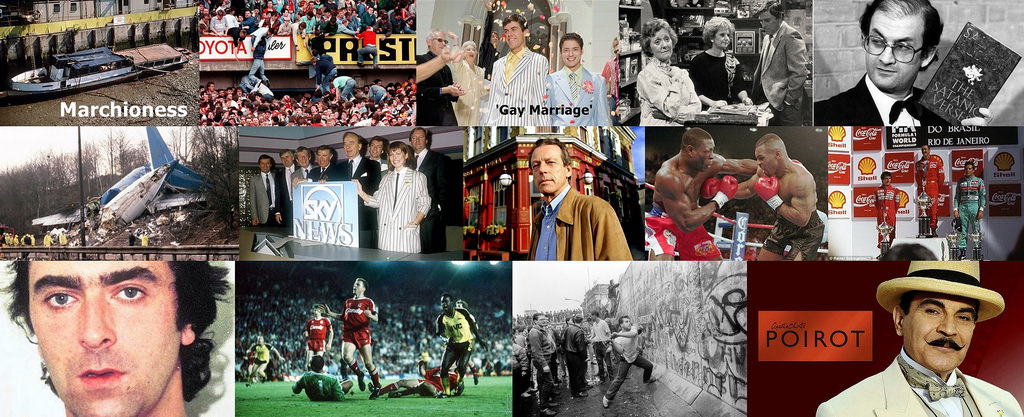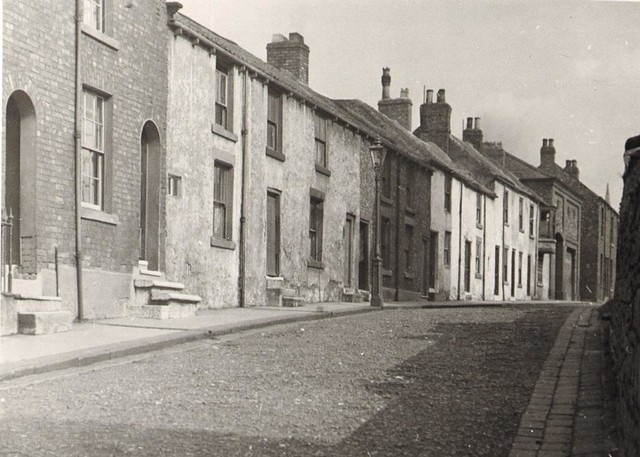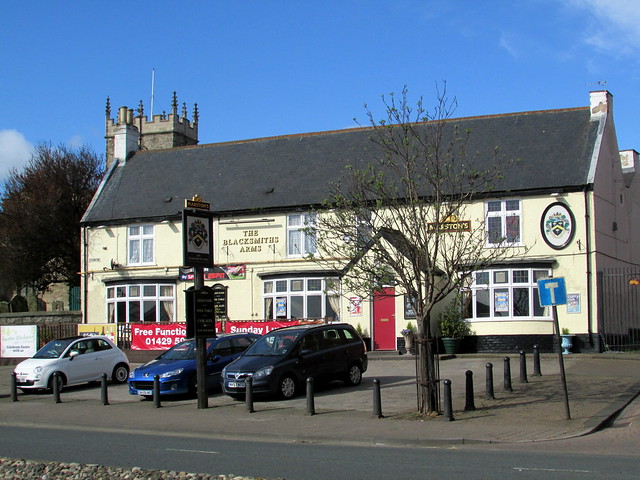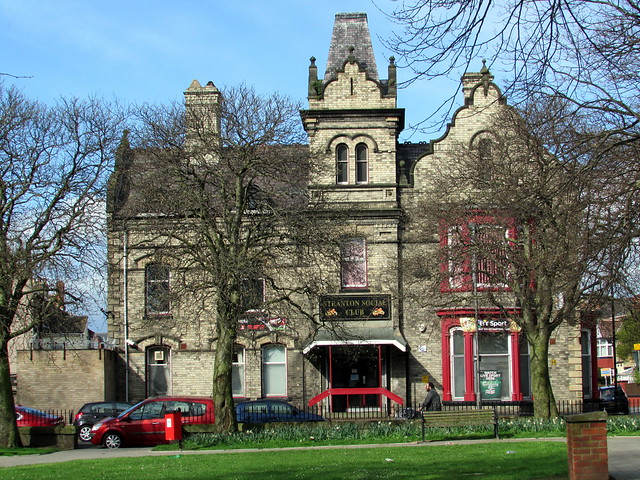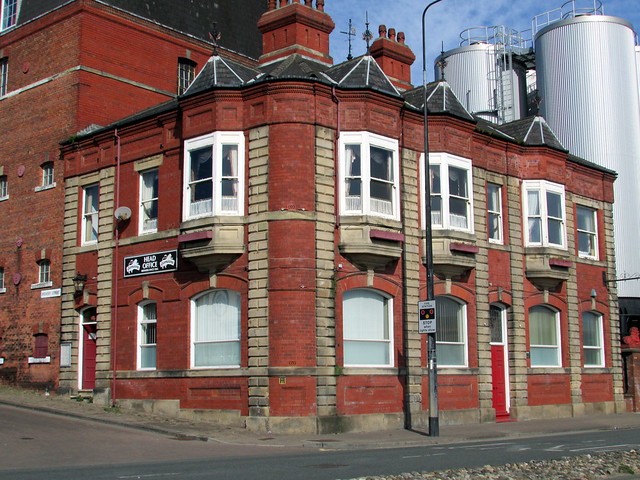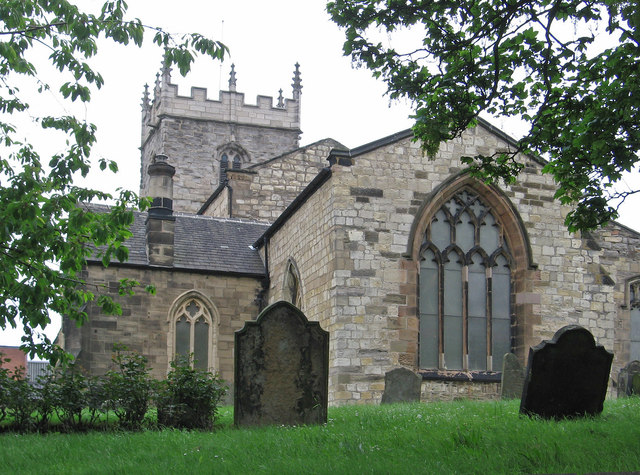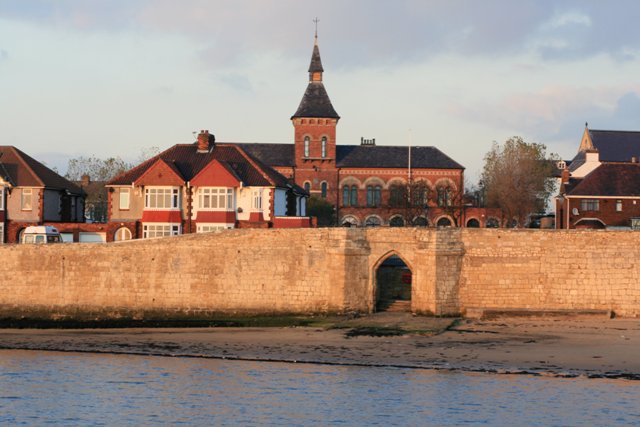That Was the Year That Was - 1989

-
Description
1989 In Technology the 486 series of microprocessor is released by Intel opening the way for the next generation of much more powerful PC's and Microsoft releases it's Office Suite including Spreadsheet, Word Processor, Database and Presentation Software which today still dominates in office applications. Following Massive protests against the Berlin Wall bringing about the collapse of The Berlin Wall and the East German Government both are dismantled which leads after many years to the reunification of East and West Germany. In China Pro democracy protesters clash with Chinese Security Forces in Tiananmen Square on June 4th and the pictures of a man taking on a tank are seen on TV news throughout the world. 12 European Community nations agree to ban the production of all chlorofluorocarbons (CFCs) by the end century. Britain in 1989 Margaret Thatcher completes ten years as prime minister – the first British prime minister of the 20th century to do so. The Britain of 1989 was teetering at the top of the Thatcherite boom that had seen unprecedented growth in the economy and a halving of the unemployment rate. Jobless figures dropped below 1,600,000 by the end of the year and a growth rate of almost 30 per cent over the decade was the highest in the developed world. But cracks were beginning to appear – with inflation out of control and the balance of payments with other countries in dire straits – even with booming oil exports. The housing bubble was about to burst with prices in London and the southeast down by 10 per cent down on the previous year. However they remained steady in the north. Inflation stood at 7.8 per cent – the highest for seven years. The fading economy aside there remained a general feeling of national confidence and the end of the Cold War provided a further "feel good" factor. The Manchester "baggy" music scene was making waves across the world as were the newly privatised British companies. Even the Hillsborough disaster, sinking of the Marchioness and an IRA bombing campaign could not dent a feeling that the country had turned around decades of decline. As the clocks struck midnight on Friday January 7, same-sex couples across the country raced to become the first to tie the knot after gay marriage became legal. Manchester United chairman Martin Edwards agrees to sell the club to Michael Knighton for £10million. 12 October – Michael Knighton drops his bid to buy Manchester United. ITV attracts a new record audience of nearly 27,000,000 for the episode of Coronation Street in which Alan Bradley (Mark Eden) is fatally run over by a Blackpool tram. The second phase of the M40 motorway, linking north Oxfordshire with the Warwickshire/Worcestershire border on the outskirts of the West Midlands conurbation, is opened. The final phase, which links this new motorway with the original London-Oxford section, is due to open within the next year. A record of more than 2.3 million new cars are sold in Britain this year. The Ford Escort is Britain's best selling car for the eighth year running, managing more than 180,000 sales, while the Volkswagen Golf is Britain's most popular foreign car with well over 50,000 sales. Ford achieves the largest sales of any carmaker in Britain for the 15th year in a row, while Vauxhall has now overtaken the Rover Group as Britain's second best selling carmaker. John Cannan, of Sutton Coldfield, is sentenced to life imprisonment SHIRLEY Banks had been married for four weeks. At about 7.40pm on October 8, 1987, she used her Marks & Spencer credit card in Bristol and made her way back to her battered orange Mini Clubman.Somewhere en route, or in the car park, she met her killer. Husband Richard came home at about 8.30pm to find their house in Clifton, Bristol, empty. He toured their favourite pubs and wine bars and phoned friends before going to bed. The next morning he called her work to be told his wife had phoned in 15 minutes earlier saying she was sick. When she again failed to return home that night, Richard called police. Three weeks after Shirley vanished, a tax disc to her Mini was discovered in Cannan’s car. Police found her thumbprint in his Bristol flat and her car in his garage. They believe he held her there overnight before dumping her 45 miles away on the Quantock Hills. Shirley’s battered and naked body was found by ramblers six months later. It was not the first time he had been in trouble. As a 14-year-old, he was placed on probation after indecent assault in phone box. In June 1981, he was jailed for eight years after raping young mum in Sutton Coldfield shop. In October 1987, Cannan was arrested after failed rape in Leamington and two months later he was charged with the murder of Mrs Banks. The following April, Cannan was convicted of murdering Shirley, rape and kidnap in Reading and rape in Bristol. Detectives investigating the murder of Suzy Lamplugh, the estate agent, have made a potential breakthrough in the case, just days before the 20th anniversary of her disappearance. A new witness has come forward with evidence that John Cannan, the man police have previously named as their chief suspect, had access to a dark BMW at the time she vanished. Officers have long suspected that 25-year-old Miss Lamplugh's killer used a black or dark BMW to abduct her after she went to show "Mr Kipper" a house at 37 Shorrolds Road in Fulham, west London, in July 1986. Her body has never been found, but she was officially declared dead in 1994. 747 crashes on the M1 Motorway A Boeing 737 airplane crashed onto the M1 motorway near East Midlands airport, killing 46 people. Eighty have survived, of whom ten are seriously injured. The British Midland flight 092 was forced to crash land after both engines of the brand new aircraft failed. It slammed into the motorway embankment at 2026 GMT, breaking into three pieces. Motorists on the M1 had a lucky escape as there were no vehicles in the immediate vicinity at the moment of impact. A report by the UK Air Accidents Investigation Branch later found the flight crew had shut down the wrong engine. The crew had responded "incorrectly" to a fractured fan blade in the No.1 engine, by shutting down the No.2 engine "which was running satisfactorily". The report made several recommendations, calling for increased engine inspections and improvements to engine vibration indicators on Boeing 737s. The Satanic Verses Iranian Muslim leader Ayatollah Khomeini has issued a death threat against British author Salman Rushdie and his publishers over the book Satanic Verses. Scotland Yard is providing the author with specialist protection and advice and all 11,000 staff at publishers Viking have received internal memos about the potential danger. Security has been increased at offices, bookshops and distribution depots. Mr Rushdie's editorial director has said a promotional tour of America may have to be cancelled. The Ayatollah - as Imam, or chief spiritual guide, of Shia Muslims across the world - broadcast a fatwa (edict) on Tehran Radio to eliminate the writer and declared the rest of the day should be one of mourning. His message said: "I inform the proud Muslim people of the world that the author of the Satanic Verses book, which is against Islam, the Prophet and the Koran, and all those involved in its publication who are aware of its content are sentenced to death." Mr Rushdie, 42, responded hours later. "I am very sad it should have happened," he said. "It is not true this book is a blasphemy against Islam. "I doubt very much Khomeini or anyone else in Iran has read this book or anything more than selected extracts taken out of context." He explained the Satanic Verses attempts to investigate conflicts between religious and secular viewpoints. Published last September, the Satanic Verses has sold 100,000 hardback copies in the UK and US and was runner up for the Booker and Whitbread literary awards. Already banned in five countries, the first demonstrations against the book took place in Bradford, West Yorkshire, where a copy was publicly burned. Politicians in Westminster have expressed outrage at the threat and have called on the government to complain formally to Iran. The Iranian Prime Minister Hussain Mousavi has sanctioned Hezbollah groups to "take the necessary action" against the author. Marchioness pleasure boat disaster In the early hours of August 20, 1989, the Marchioness sank after a devastating crash on the River Thames. Of the 131 party-goers on the boat, 51 died, many trapped in the mangled wreck. On a hot, late-summer evening in 1989, the Marchioness pleasure boat collided with the dredger Bowbelle and sank in the River Thames. The captain and second mate of the barge, the dredger Bowbelle, are now under arrest. Among those still missing are the captain of the cruiser, the Marchioness, and a city banker who chartered the boat to celebrate his birthday. There are fears the final death toll could be as high as 60. Divers are still searching below deck where more bodies are expected to be found. Most of those on board were young people in their 20s. Both vessels were moving down river towards Southwark Bridge in the early hours of Sunday morning when they collided. The Marchioness's owners said the 90-ton boat was struck a blow from the 2,000-ton dredger which forced it directly into the larger vessel's path. They said the Bowbelle then ran over the cruiser forcing it underwater "like a bicycle being run over by a lorry". So far the owners of the Bowbelle have made no public comment. Police commandeered other boats to search for survivors who had been tipped into the river after the collision. Party-goers on other cruisers witnessed the events and some tried to help. "We were all shouting at the driver to back up to try and rescue some of the people which he did. "We got back and some of the guys jumped into the water and pulled some of the people onto our boat," said one witness, Rob Elliott. So far 89 people are known to have survived the crash. May 24, 1989: Hislop fury as Yorkshire Ripper's wife wins £600,000 damages from Private Eye "If that's justice, I'm a banana," said Private Eye editor Ian Hislop when Sonia Sutcliffe was awarded record libel damages after the satirical magazine accused her of selling her story to the papers. In a landmark case for British justice, a High Court jury awarded £600,000 damages to Sonia Sutcliffe – wife of ‘the Yorkshire Ripper’ Peter Sutcliffe – against satirical magazine Private Eye, on this day in 1989. The magazine, which claims its raison d’etre is to “attack vice, folly and humbug”, had claimed that Mrs Sutcliffe had attempted to profit from her connection to her husband, and accepted £250,000 from the Daily Mail for an article detailing their life together. It said that there had been a “squalid race” to buy her story, and that she had negotiated with various publications in order to get the greatest sum possible for her story. Mrs Sutcliffe’s lawyers argued that she had done no such deal, even though it would not have been unreasonable for her to do so in order to fund the start of a new life, away from media attention and the approbation of neighbours. The sum of damages awarded was by any measure remarkable, being some £100,000 more than any previously awarded in a British libel case. Private Eye’s editor Ian Hislop pointed out that was 100 times more than damages awarded to three of Sutcliffe’s victims. Sky Television begins broadcasting as the first satellite TV service in Britain On June 8th 1988 Rupert Murdoch, Chieft Executive of News International, announced his intention to expand the company's interests in satellite tv under the group name Sky Television. Until this time Sky's satellite tv involvement was represented by Sky Channel, a 6 year old family entertainment channel broadcasting to cable TV systems across Europe. 1988 RSL research highlighted the success of this channel, which acheived a 13% share of all UK cable viewing, out performing both BBC2 and Channel 4. Sunday February 5th 1989 saw a revolution in television viewing habits in the United Kingdom with the launch of the Sky Television Network direct-to-home service via the Astra 1A satellite. The line-up consisted of four channels - Sky Channel, Sky News, Sky Movies and a joint venture sports channel, Eurosport. Sky also promised Sky Arts and The Disney Channel to begin later in that year in '89, but it never happened. 94 fans are killed in a crush during the FA Cup semi-final at the Hillsborough Stadium At least 93 football supporters have been killed in Britain's worst-ever sporting disaster. They were crushed to death at Hillsborough stadium in Sheffield during the FA Cup semi-final between Nottingham Forest and Liverpool. The crush is said to have resulted from too many Liverpool fans being allowed in to the back of an already full stand at the Leppings Lane end of the ground. More than 2,000 Liverpool fans had still not got into the stadium when the match started at 1500. A police spokesman said orders were given for the gate to the stand to be opened because they believed the pressure of fans outside the ground was "a danger to life". But as fans rushed in, those already there were pushed forward and crushed against the high, wired-topped safety fences. However, it was more than five minutes into the match before what was happening became apparent to those not in the Leppings Lane stand. Then, alerted by fans spilling through a narrow gap onto the pitch or being lifted by others into the seating areas above, a policeman ran onto the field and ordered the referee to stop the game. But improved security measures recently introduced at grounds to keep rival fans apart meant, for many, there was no escape from the crush. Police and match officials attempted to help those trapped clamber over the safety barrier. Bodies were lifted forward and laid out on the pitch - many of them teenagers and children. Other injured fans were ferried to ambulances on stretchers improvised from crash barriers and advertising hoardings. At least 200 people were injured, about 20 seriously. Some fans have said bad ticket allocation contributed to the disaster. Liverpool has far more supporters than Nottingham Forest but were given 6,000 fewer tickets and allocated the smaller Leppings Lane stand. 1989 Timeline 4 January – a memorial service is held for the 270 people who died in the Lockerbie air disaster two weeks ago. Margaret Thatcher and several other world political leaders are among more than 200 people present in the church service at the village of Old Dryfesdale near Lockerbie. 8 January – the Kegworth air disaster: a British Midland Boeing 737 crashes onto the M1 motorway on the approach to East Midlands Airport, killing 44 people. Original airdate of the Only Fools and Horses episode Yuppy Love during which Del Boy falls through a bar. A 2006 poll named the scene the most popular of the entire programme, while it was also named 7th Greatest Television Moment of all time in a 1999 Channel 4 poll. 11 January - Accident investigators say that the Kegworth air disaster was caused when pilot Kevin Hunt, who survived the crash, accidentally shut down the wrong engine. Abbey National building society offers free shares to its 5,500,000 members. 14 January – Muslims demonstrate in Bradford against The Satanic Verses, a book written by Salman Rushdie, burning copies of the book in the city streets. 16 January – The Late Show, Britain's first daily television arts programme, which is presented by Sarah Dunant debuts on BBC 2 directly after Newsnight. Debut of the critically acclaimed children's television series Press Gang on ITV. 19 January – unemployment fell by 66,000 in December, to a nine-year low of just over 2 million. It was last at this level in 1980. 25 January – John Cleese wins a libel case after the Daily Mirror described him as having become like his character Basil Fawlty in the sitcom Fawlty Towers. 5 February – Sky Television begins broadcasting as the first satellite TV service in Britain. 12 February – Belfast lawyer Pat Finucane is murdered by the Ulster Freedom Fighters. 14 February – Ayatollah Ruhollah Khomeini of Iran places a fatwa (order to kill) on author Salman Rushdie following the publication of his controversial book The Satanic Verses, which has caused outrage among the Islamic community of Britain. 20 February – IRA bomb the Tern Hill Barracks in Shropshire, injuring 50 soldiers of the Parachute Regiment. 23 February –27-year-old William Hague wins the Richmond by-election in North Yorkshire for the Conservative Party following the departure of Leon Brittan to the European Commission. Den Watts, the hugely popular character played by Leslie Grantham in the BBC's soap opera EastEnders, departs from the series (which he joined at its inception four years ago) as the character is presumably killed in an episode watched by over 20 million viewers. 25 February – The long-awaited WBA Heavyweight title fight between Britain's Frank Bruno and America's Mike Tyson is held at the Hilton Hotel in Las Vegas. Because of the time difference between Britain and the United States, the fight is televised in the UK in the early hours of 26 February. Tyson wins after the referee stops the bout in the fifth round. 3 March – Margaret Thatcher becomes a grandmother for the first time when her daughter-in-law Diane gives birth to a son in Dallas, Texas. 4 March – Purley rail crash: two trains collide at Purley, Surrey killing six people. 7 March – Iran breaks off diplomatic relations with the UK over Salman Rushdie's controversial book The Satanic Verses. 16 March – Britain's unemployment level is now below 7% for the first time in eight years, but still remains marginally over 2 million. 17 March – The three men convicted of murdering paperboy Carl Bridgewater in Staffordshire 10 years ago have their appeals rejected. A fourth man convicted in connection with the killing died in prison in 1981. 20 March – Chief Superintendent Harry Breen and Superintendent Bob Buchanan of the Royal Ulster Constabulary are killed by the IRA. 26 March – Nigel Mansell wins the Brazilian Grand Prix. 5 April – 500 workers on the Channel Tunnel go on strike in a protest against pay and working conditions. 6 April – The government announces an end to the legislation which effectively guarantees secure work for more than 9,000 dockers over the remainder of their working lives. 10 April – Nick Faldo becomes the first English winner of Masters Tournament. 14 April – Ford unveils the latest version of its small Fiesta hatchback, which is being built at the Dagenham plant in England and the Valencia plant in Spain. 15 April – 94 fans are killed in a crush during the FA Cup semi-final at the Hillsborough Stadium in Sheffield during the FA Cup semi-final between Nottingham Forest FC and Liverpool F.C.. Around 300 others have been hospitalized. Several of those injured are in a serious condition and there are fears that the death toll (already the worst of any sporting disaster in Britain) could rise even higher. The youngest victim is a 10-year-old boy, the oldest is 67-year-old Gerard Baron, brother of the late former Liverpool player Kevin Baron. 16 April – Denis Howell, a former Labour sports minister, urges for the FA Cup final to go ahead this season despite consideration by The Football Association for it to be cancelled due to the Hillsborough disaster. 17 April – Home Secretary Douglas Hurd announces plans to make all-seater stadiums compulsory for all Football League First Division clubs to reduce the risk of a repeat of the Hillsborough tragedy. 18 April –The European Commission accuses Britain of failing to meet standards on drinking water. Tottenham Hotspur remove perimeter fencing from their White Hart Lane stadium as the first step towards avoiding a repeat of the Hillsborough disaster is taken in English football. The Hillsborough disaster claims its 95th victim when 14-year-old Lee Nicol dies in hospital as a result of his injuries. He was visited in hospital by Diana, Princess of Wales, hours before he died. 19 April – The Sun newspaper sparks outrage on Merseyside with an article entitled "The Truth", which claims that spectators robbed injured and dead spectators, and attacked police officers when they were helping the injured and dying. Channel Tunnel workers end their 14-day strike. 20 April - The London Underground is at virtual standstill for a day as most of the workers go on strike in protest against plans for driver-only operated trains. A MORI poll shows Conservative and Labour support equal at 41%. 24 April – The BBC's Ceefax teletext is only running as a partial service today due to a strike by broadcasting unions. 28 April - John Cannan, of Sutton Coldfield, is sentenced to life imprisonment with a recommendation that he should never be released after being found guilty of murdering one women and sexually assaulting two others. Fourteen Liverpool fans are convicted of manslaughter and receive prison sentences of up to three years in Brussels, Belgium, in connection with the Heysel disaster at the 1985 European Cup Final in which 39 spectators (most of them Italian) died. A further eleven Liverpool fans are cleared. 4 May – Margaret Thatcher completes ten years as prime minister – the first British prime minister of the 20th century to do so. 5 May – The Vale of Glamorgan constituency in South Wales is seized by the Labour Party in a by-election after 38 years of Conservative control. 8 May – More than 3,000 British Rail employees launch an unofficial overtime ban, walking out in protest at the end of their eight-hour shifts. 14 May – A public inquiry, headed by Lord Justice Taylor of Gosforth, begins into the Hillsborough disaster. 18 May – Unemployment is now below 2,000,000 for the first time since 1980. The Conservative government's joy at tackling unemployment is, however, marred by the findings of a MORI poll which shows Labour slightly ahead of them for the first time in almost three years. 19 May – Walshaw Dean Lodge, West Yorkshire, enters the UK Weather Records with the Highest 120-min total rainfall at 193 mm. As of July 2006 this record still stands. 20 May – Liverpool win the FA Cup final with a 3–2 victory over their Merseyside rivals Everton. It is the second all-Merseyside cup final in four seasons, and as happened in 1986, Ian Rush is on the score-sheet for Liverpool twice. Liverpool have won the trophy four times now. 24 May - Sonia Sutcliffe, wife of "Yorkshire Ripper" Peter Sutcliffe, is awarded £600,000 in High Court damages against the satirical magazine Private Eye. A police raid on a suspected drugs operation at a public house in the Heath Town district of Wolverhampton, leads to a riot in which up to 500 people throw missiles and petrol bombs at police officers. 26 May – Arsenal win the First Division league title against Liverpool, with a goal from Michael Thomas in the last minute of the last game of the season. Arsenal have now been league champions 9 times but until now hadn't been league champions for 18 years. 30 May – Passport office staff in Liverpool begin an indefinite strike in protest against staffing levels. 19 June – Labour wins 45 of Britain's 78 European Parliament constituencies in the European elections, with the Conservatives gaining 32 seats. The Green Party of England and Wales gains 2,300,000 votes (15% of the vote) but fails to gain a single seat. 21 June – Police arrest 250 people celebrating the summer solstice at Stonehenge. 22 June – London Underground workers stage their second one-day strike of the year. 24 June – Race rioting breaks out in Dewsbury, West Yorkshire, following a protest in the town against the Islamic community by members of the far right British National Party, formed 7 years ago as a splinter from the National Front. 1 July – Fears of a property market downturn are heightened when it is reported that many home-owners looking to move are cutting the asking price of their homes by up to 20% in an attempt to speed up the sale of their property, following the property boom of the last 3 years where the price of many homes doubled at the very least. 2 July – An IRA bomb kills a British soldier in Hanover, West Germany. 10 July – House prices in the south of England have fallen for the second successive quarter, but are continuing to rise in Scotland as well as the north of England. 11 July – Britain's dock workers go on strike in protest against the abolition of the Dock Labour Scheme. 13 July – The fall in unemployment continues, with the tally now standing at slightly over 1,800,000 – the lowest in nearly a decade. 17 July – 1,500 British tourists are delayed for up to eight hours by French air traffic control strikes. 19 July – The BBC programme Panorama accuses Shirley Porter, Conservative Leader of Westminster City Council, of gerrymandering. 20 July – Labour's lead in the opinion polls has increased substantially, with the latest MORI poll putting them nine points ahead of the Conservatives on 45%. 25 July – The Princess of Wales opens the Landmark Aids Centre, a day centre for people with AIDS, in London. 28 July – The industrial action by British Rail drivers is reported to be coming to an end as most of the train drivers have ended their overtime ban. 1 August – Charlotte Hughes of Marske-by-the-Sea in Cleveland, believed to be the oldest living person in England, celebrates her 112th birthday. 4 August – PC David Duckinfield, the chief superintendent who took control of the FA Cup semi-final game where the Hillsborough disaster occurred on 15 April this year, is suspended from duty on full pay after an inquiry by Lord Justice Taylor blames him for the tragedy in which 95 people died. Two victims of the tragedy, Andrew Devine (aged 22) and Tony Bland (aged 19) are still unconscious in hospital. 14 August – The West Midlands Police Serious Crime Squad is disbanded when 50 CID detectives are transferred or suspended after repeated allegations that the force has fabricated confessions. 17 August – Introduction of electronic tagging to monitor and supervise crime suspects. 18 August – Manchester United chairman Martin Edwards agrees to sell the club to Michael Knighton for £10million. 20 August – Marchioness disaster: A pleasure cruiser collides with a barge in the River Thames killing 51 people. 26 August – Betteshanger, the last colliery in Kent, closes, signalling the end of the Kent Coalfield after 93 years. 29 August – Stone-throwing youths cause mayhem at the Notting Hill carnival in London, in which many innocent bystanders are injured. 30 August – The National Trust's house at Uppark in West Sussex is severely damaged by fire. 31 August – Buckingham Palace confirms that The Princess Royal and Capt Mark Phillips are separating after 16 years of marriage. 2 September – Economy experts warn that a recession could soon be about to hit the United Kingdom. This would be the second recession in a decade. 7 September – Heidi Hazell, the 26-year-old wife of a British soldier, is shot dead in Dortmund, West Germany. 8 September – The IRA admits responsibility for the murder of Heidi Hazell. The act is condemned as "evil and cowardly" by British prime minister Margaret Thatcher and as "the work of a psychopath" by Opposition Leader Neil Kinnock. 12 September – 19,000 ambulance crew members across Britain go on strike. 15 September – SLDP leader Paddy Ashdown addresses his party's annual conference in Brighton with a vow to "end Thatcherism" and achieve a long-term aim of getting the SLDP into power. 22 September – Deal barracks bombing: The IRA bomb the Royal Marine School of Music in Deal, Kent killing 11 soldiers. 26 September – Nigel Lawson resigns as Chancellor of the Exchequer; replaced by John Major, while Douglas Hurd becomes Foreign Secretary. 27 September – David Owen, leader of the Social Democratic Party "rump" which rejected a merger with the Social and Liberal Democrats, admits that his party is no longer a national force. 29 September – House prices in London have fallen by 3.8% since May, and are now 16% lower than they were at the height of the property boom last year. 2 October – Three clergy claiming to be from the British Council of Protestants, including Ian Paisley, cause a disturbance at an Anglican church service in Rome at which the Archbishop of Canterbury Robert Runcie is preaching in protest at his suggestion that the Pope could become the spiritual leader of a united church. 8 October – The latest CBI findings spark fear of a recession. 10 October – The World Wrestling Federation holds its first UK event, at the London Arena. 11 October - The Rover Group, Britain's largest independent carmaker, launches its new medium-sized hatchback, the 200 Series, which replaces the small four-door saloon of the same name, and gives buyers a more modern and upmarket alternative to the ongoing Maestro range, which has declined in popularity recently. The England national football team qualifies for next summer's FIFA World Cup in Italy when drawing 0–0 with Poland in Warsaw. 12 October – Michael Knighton drops his bid to buy Manchester United. 15 October – Recession fears deepen as stock market prices continue to fall dramatically. 16 October – The Social and Liberal Democrats, formed last year from the merger of the Social Democratic Party and Liberal Party, are renamed the Liberal Democrats. 19 October - The Guildford Four are released from prison after the High Court quashes their convictions for the 1975 terrorist atrocity. Labour now has a 10-point lead over the Conservatives in the last MORI poll, with 48% of the vote. 23 October – The Police Force are now taking 999 calls in London due to the ongoing strike by ambulance crews. 31 October – British Rail announces that the proposed high-speed rail link to the Channel Tunnel is being postponed for at least one more year. 2 November – Ford Motor Company takes over Jaguar in a £1.6 billion deal. 7 November - General Assembly of the Church of England votes to allow ordination of women. Don and Roy Richardson, developers of the new Merry Hill Shopping Centre in the West Midlands, announce plans to build the world's tallest building – a 2,000 foot tower including a hotel and nightclub – on land adjacent to the shopping complex, which becomes fully operational next week after five years of gradual development. 8 November – British Army and Royal Air Force troops are now manning London's ambulance services as the regular ambulance crews are still on strike. 10 November – Margaret Thatcher visits Berlin the day after the fall of the Berlin Wall, which brings the reunification of Germany forward after Germans were allowed to travel between West and East Berlin for the first time since the wall was built in 1961, and between West and East Germany for the first time since the partition of the country after the war. 14 November – The Merry Hill Shopping Centre on the Dudley Enterprise Zone in the West Midlands becomes fully operational with the opening of the final shopping mall. The development, which now employs around 6,000 people, first opened to retailers four years ago with several retail warehousing units, and has gradually expanded to become Europe's largest indoor shopping centre. Construction has now begun on the Waterfront office and leisure complex, also within the Enterprise Zone and overlooking the shopping centre, which will open to its first tenants next year. 16 November – Children Act alters the law in regard to children in England and Wales; in particular, it introduces the notion of parental responsibility in access and custody matters. 21 November - The House of Commons is televised live for the first time. Nigel Martyn, 23, becomes Britain's first £1 million goalkeeper when he is transferred from Bristol Rovers to Crystal Palace. 23 November – 69-year-old backbencher Sir Anthony Meyer challenges Margaret Thatcher's leadership of the Conservative Party, reportedly fearing that the party will lose the next general election after falling behind Labour in several recent opinion polls. Her leadership has never been challenged before in almost 15 years as party leader, more than 10 of which have been spent as prime minister. 30 November – Russell Shankland and Dean Hancock, serving eight-year prison sentences for the manslaughter of taxi driver David Wilkie in South Wales during the miners strike, are released from prison on the fifth anniversary of the crime. December - The M42 motorway is completed when the final section opens, giving the town of Bromsgrove in Worcestershire (some 10 miles south of Birmingham) a direct link with the M5. Also completed this month is the section of the M40 between Warwick and the interchange with the M42 just south of Solihull. The rest of the M40, between Warwick and Oxford, will open next winter. Last coypu in the wild in Britain is trapped in East Anglia. The Beer Orders restrict the number of tied pubs that can be owned by large brewery groups to two thousand and require large brewer landlords to allow a guest ale to be sourced by tenants from someone other than their landlord. 3 December - Margaret Thatcher, along with American president George Bush and Soviet leader Mikhail Gorbachev, declare the end of the Cold War after 40 years. 9,000 workers at British carmaker Vauxhall threaten to go on strike – a move which could end Britain's hopes of becoming to a £200million engine plant for General Motors. A new-look Band Aid forms for a new version of the Do They Know It's Christmas? charity single for African famine relief. 5 December – Margaret Thatcher defeats Anthony Meyer in a leadership election for the Conservative Party, but 60 MPs do not vote for her. 6 December – Doctor Who is discontinued by the BBC after 26 years. 8 December – ITV attracts a new record audience of nearly 27,000,000 for the episode of Coronation Street in which Alan Bradley (Mark Eden) is fatally run over by a Blackpool tram. 12 December – Shares in newly privatised regional water industry utility companies (including the largest, Thames Water) achieve premiums of up to 68% in the first day of trading on the Stock Exchange. 18 December - The Labour Party abandons its policy on closed shops. The second phase of the M40 motorway, linking north Oxfordshire with the Warwickshire/Worcestershire border on the outskirts of the West Midlands conurbation, is opened. The final phase, which links this new motorway with the original London-Oxford section, is due to open within the next year. 23 December – Band Aid II gain the Christmas Number One with their charity record. 5 years ago, the original Band Aid single reached number 1 and achieved the highest sales of any single ever released in the UK. 27 December – SDP leader David Owen predicts another 10 years of Conservative rule, despite Neil Kinnock's Labour Party having a seven-point lead over the Conservatives with 46% of the vote in the final MORI poll of the decade. 30 December – 22 people involved in the Lockerbie disaster are among those recognised in the New Year's Honours list, while there are knighthoods for former Liberal leader David Steel and the actress Maggie Smith becomes a Dame. Recipients of sporting honours include the boxer Frank Bruno and the golfer Tony Jacklin, both of whom are credited with MBEs. Inflation has increased significantly this year, standing at 7.8% – the highest for seven years. Fears of a recession are deepened by the economy's overall growth rate dropping to 1.7% - the lowest since the last recession ended in 1981. House prices in London fall to an average of £86,800 this year – a 10% decrease on the 1988 average. After spending most of the decade closed down, Whiteleys in London re-opens as a shopping centre. First showing of the clay animation film A Grand Day Out introducing the characters Wallace and Gromit. Remains of The Rose and Globe Theatre discovered in London. Permanent gates are installed across Downing Street in London by the end of the year. Red kites reintroduced to England and Scotland. A record of more than 2.3 million new cars are sold in Britain this year. The Ford Escort is Britain's best selling car for the eighth year running, managing more than 180,000 sales, while the Volkswagen Golf is Britain's most popular foreign car with well over 50,000 sales. Ford achieves the largest sales of any carmaker in Britain for the 15th year in a row, while Vauxhall has now overtaken the Rover Group as Britain's second best selling carmaker. Television BBC1 5 January – Dooby Duck's Disco Bus (1989–1992) 22 January – Campion (1989–1990) 6 April – Tricky Business (1989–1991) 20 May – That's Showbusiness (1989–1996) 4 September – Breakfast News (1989–2000) 8 September – Challenge Anneka (1989–1995, 2006) 14 September – The Poddington Peas (1989–1990) Penny Crayon (1989–1990) Clockwise (1989–1991) 16 October – Birds of a Feather (1989–1998 BBC, 2014–present ITV) 8 November – Byker Grove (1989–2006) 16 November – Maid Marian and her Merry Men (1989–1994) 31 December – The Eighties BBC2 13 January – A Bit of Fry & Laurie (1989–1995) 12 May – KYTV (1989–1993) 9 June – I, Lovett (1989–1993) ITV 8 January – Agatha Christie's Poirot (1989–2013) 13 January – A Bit of a Do (1989) 16 January – Press Gang (1989–1993) 12 February – Find a Family (1989–1991) 24 February – Fun House (1989–1999) 13 March – The Labours of Erica (1989–1990) 6 April – Rolf's Cartoon Club (1989–1993) 14 April – Windfalls (1989) 7 June – Everybody's Equal (1989–1991) 11 July – Somewhere to Run 2 November – The Riddlers (1989–1998) 6 November – About Face (1989–1991) 24 December – The Woman in Black Channel 4 5 January – Desmond's (1989–1994) 3 April – The Channel Four Daily (1989–1992) 23 May – Absolutely (1989–1993) 31 December – Granpa (1989) Music Charts Number One Singles "Especially for You" - Kylie Minogue and Jason Donovan "Something's Gotten Hold of My Heart" - Marc Almond with Gene Pitney "Belfast Child" - Simple Minds "Too Many Broken Hearts" - Jason Donovan "Like a Prayer" - Madonna "Eternal Flame" - The Bangles "Hand on Your Heart" - Kylie Minogue "Ferry 'Cross the Mersey" - The Christians, Holly Johnson, Paul McCartney, Gerry Marsden and Stock Aitken Waterman "Sealed With a Kiss" - Jason Donovan "Back to Life (However Do You Want Me)" - Soul II Soul featuring Caron Wheeler "You'll Never Stop Me Loving You" - Sonia "Swing the Mood" - Jive Bunny and the Mastermixers "Ride On Time" - Black Box "That's What I Like" - Jive Bunny and the Mastermixers "All Around the World" - Lisa Stansfield "You Got It (The Right Stuff)" - New Kids on the Block "Let's Party" - Jive Bunny and the Mastermixers "Do They Know It's Christmas?" - Band Aid II -
Owner
brizzle born and bred -
Source
Flickr (Flickr) -
License
What does this mean? Attribution-NonCommercial-ShareAlike License
-
Further information
Link: https://www.flickr.com/photos/20654194@N07/17456593123/
Resource type: Image
Added by: Peter Smith
Last modified: 7 years, 11 months ago
Viewed: 1038 times
Picture Taken: 2015-05-25T12:24:50 -
Co-Curate tags
